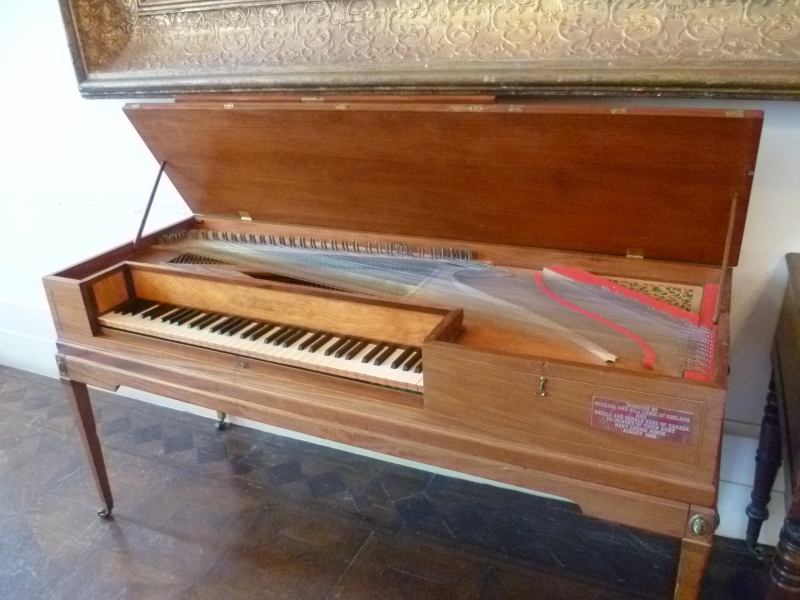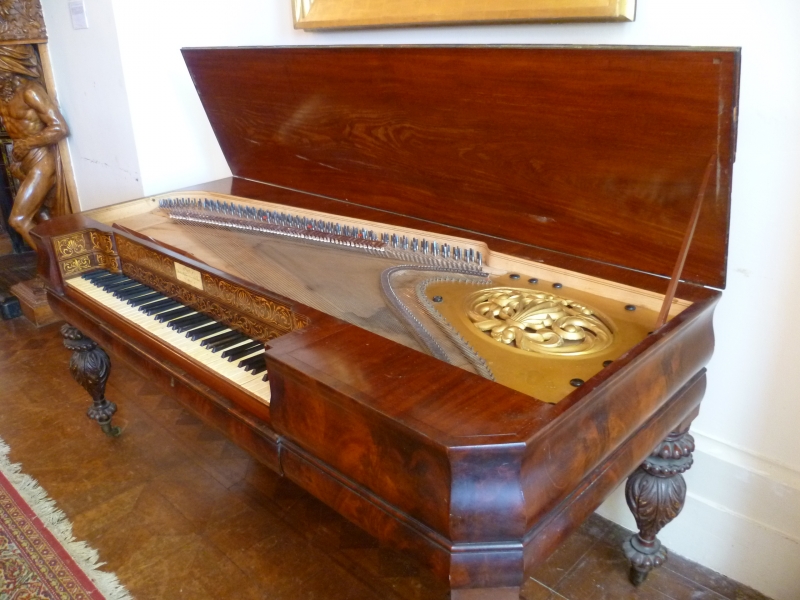During the past years a number of initiatives in the field of early music and historically informed performance have been set up at the South African College of Music, with the aim of making it a center for performance and research in these fields.
Every year in the so-called winter term (June/July) a course in Historically Informed Performance is offered to 4th year BMus students and occasional students from outside UCT. Several concerts by students and lecturers take place during the course.
Several postgraduate students are currently working on projects related to early music and historically informed performance:
Azra Isaacs (MMus): J.S.Bach's Viola da Gamba Sonatas transcribed for Viola
Becky L. Steltzner (DMus): The Development of the Clarinet in South Africa, from its arrival to the present day
This thesis explores how and when the clarinet came into South Africa, how it was played in the early years, and its development up to the present day. The thesis investigates the difficulties of finding source material, in addition to correcting some erroneous information in published sources. Where early programmes exist, pieces played in the 1800s will be listed. From the point where the clarinet can be considered mainstream, which is some time in the early 20th century, the focus will shift to how South African composers have expanded the clarinet’s repertoire. There will also be information given on clarinet held in South African museum collections.
Erik Dippenaar (PhD): Conquering the Cape - the role of domestic keyboard instruments in colonial society and the colonisation process.
The focus of this research project will be to trace the history and usage of domestic keyboard instruments in the Cape Colony from the first mention of a harpsichord in 1660 to the end of the British colonial period in 1910. It will map the frequency of imports, examine patterns in the origins of imported instruments, as well as map the locations where these instruments were used. This project will draw attention to what repertoire would have been played on these instruments and investigate the position and importance of these instruments in the colonial domestic setup. It will bring to light the role that these instruments played in colonial society and in the colonisation process.
A research project on the liturgical manuscripts relating to the church of Santa Cecilia in Trastevere, Rome, kept at the Grey Collection of the National Library of South Africa, Cape Town, is being undertaken by Dr Morné Bezuidenhout and Dr Rebekka Sandmeier. Several conference papers (2012: Pretoria, Göttingen) and a public lecture (2012: Cape Town) have been produced. An edition of a legendary (Ms Grey 48.b.4-5) written at and for that church around 1100AD is being prepared for publication in 2015.
A program of music in the Grey Collection of the National Library of South Africa has received a Donald Gordon Creative Arts Award in 2012. The Cape Consort performed music from the manuscript Ms Grey 4.b.5 at the Slave Church as part of the “Infecting the City” festival in Cape Town in March 2013. In 2014 the office of St Liudger from the same manuscript will be performed at the original locations in Münster, Werden and Billerbeck.
Strubenholm – the historic, 19th century building housing the academic and administrative staff – is also the home for several historic keyboard instruments, which are in the process of being restored to working order. Two of them are already playable:

Square piano: Broadwood |

Square piano: Erard |
